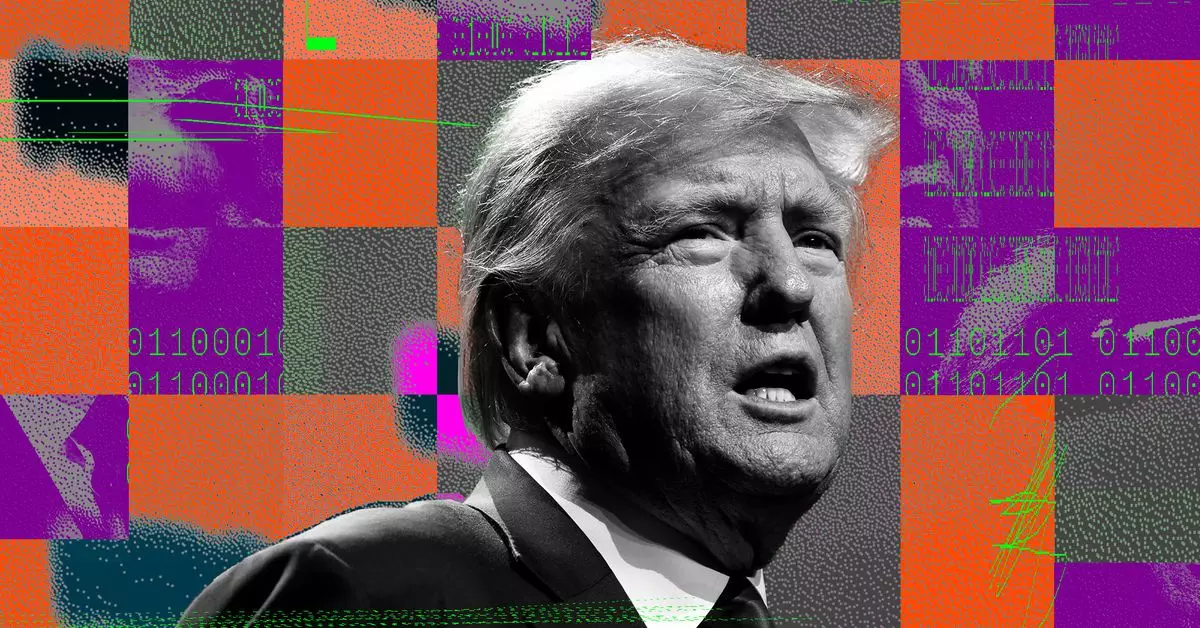In a dramatic turn of events, the U.S. Department of Justice has unveiled charges against three Iranian nationals connected to a cyberattack that allegedly targeted Donald Trump’s presidential campaign. This revelation illuminates the ongoing threat posed by state-sponsored cyber activities and underscores the delicate balance of information warfare in modern politics. The indictment, released on a recent Friday, aligns with previous concerns regarding cyber espionage tactics employed by adversarial nations, particularly those with government affiliations like Iran’s Islamic Revolutionary Guard Corps (IRGC).
The hackers employed sophisticated methods rooted in social engineering and spear phishing techniques to infiltrate the campaign’s digital defenses. This approach focused on manipulating individuals into revealing sensitive information, showcasing a growing trend where attackers exploit human psychology rather than solely technical vulnerabilities. By gaining access to email accounts of campaign officials, the hackers proceeded to extract nonpublic documents and communications, subsequently disseminating this stolen information to the press, thereby amplifying the chaos and uncertainty during an already contentious electoral season.
According to the indictment, the hackers were linked to Respina Networks, an Iranian internet service provider identified as facilitating their escapade by enabling “unrestricted” internet access beyond the borders of Iran. This revelation hints at a systemic challenge within cybersecurity, where connections to state-affiliated entities complicate international relations and accountability. Furthermore, the use of a commercial virtual private network (VPN) to construct misleading domain names illustrates a calculated sophistication in their operations, making detection and prevention increasingly difficult.
While the indictment does not specify which candidate was directly affected by the cyber intrusion, confirmation of the Trump campaign’s previous assertions of being hacked adds credence to the allegations. This absence of clarity leaves many questions unanswered, particularly regarding the extent of the information compromised and its potential impact on the electoral process. The implications of these events extend beyond immediate political ramifications; they point toward an evolving battlefield where data security and transparency conflate and merge into one critical issue.
Assistant Attorney General Matthew G. Olsen emphasized the seriousness of these types of cyber intrusions, labeling them as direct threats to the integrity of democratic processes. The U.S. government’s response also includes a decisive financial incentive, with the Treasury Department offering up to $10 million for any leads related to the three suspects. This multifaceted approach reflects an urgent need to fortify defenses against foreign cyber threats and protect the sanctity of democratic institutions.
As the digital age evolves, so too do the threats confronting nations and their political apparatuses. The charges against the Iranian nationals serve as a stark reminder of the vulnerabilities within political campaigns and the overarching necessity for robust cybersecurity measures. The future of democratic integrity relies not only on counteracting these cyber threats but also on fostering resilience within institutions that remain under constant scrutiny from international adversaries. In this battleground of information, awareness and vigilance will be essential to safeguarding democratic values.

